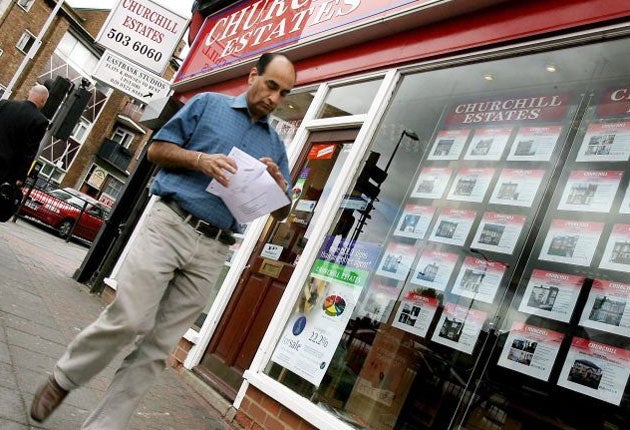UK recession likely, says Bank of England

More storm clouds settled on the British economy last night, with a near-blizzard of gloomy forecasts, depressing data and downbeat pronouncements from leading figures. The Governor of the Bank of England, Mervyn King, said yesterday: "It now seems likely that the UK economy is entering a recession." The CBI virtually confirmed that recession has already arrived in much of the economy, in its latest survey of industrial trends yesterday.
Manufacturing still employs almost three million workers, and their prospects are increasingly bleak, as the credit crisis spreads from banking and property into the "real economy". The CBI says its members have not been as pessimistic about output and orders since 1980, during the worst recession since the Second World War.
The credit squeeze has started to affect the finance available to businesses, especially smaller ones, and even the fast-depreciating pound has not helped win many new export orders. Car makers, including Nissan in Sunderland, have announced short-time working.
Mr King's admission that the UK is likely to slide into recession is significant because it is the first time the Bank or any official UK body has joined the growing consensus among economists that output and living standards will be lower next year than this. The CBI recently said the economy would contract in 2009, as has the IMF, the EU Commission and numerous City and academic economists. Only the Treasury, still formally tied to its March Budget prediction of 2 per cent growth in 2009 remains out of step.
The pre-Budget report, expected in the next few weeks, will have to radically downgrade that, and post huge increases in public borrowing. Yesterday, the respected national Institute for Economic and Social Research joined the recessionary chorus. The NIESR said the economy would shrink by 0.9 per cent over 2009, the first full year of recession since 1991.
The institute said that the stagnant housing market, lower consumer spending and collapsing business investment would push the economy lower. HM Revenue and Customs has reported a 50 per cent decline in property market activity during September, compared with last year. In Europe, the IMF warned that banks could still be at risk from the credit crunch, and would continue to require state aid.
Subscribe to Independent Premium to bookmark this article
Want to bookmark your favourite articles and stories to read or reference later? Start your Independent Premium subscription today.

Join our commenting forum
Join thought-provoking conversations, follow other Independent readers and see their replies